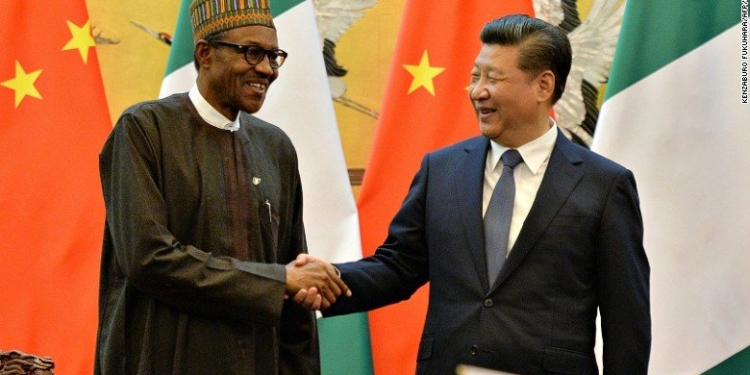Speaking yesterday at the ongoing IMF/World Bank Spring Meetings in the United States, Director, IMF Monetary and Capital Markets Department, Tobias Andrian, said there was nothing bad in borrowing from China, except that the terms of such loans are always questionable.
He said: “Loans from China are good, but the countries should consider the terms of the loans. And we urge countries that when they borrow from abroad, that the terms are favourable for the borrower, and should be conforming to the Paris Club arrangements.”
Andrian, who spoke on the Global Financial Stability Report (GFSR), said: “Let me reiterate that in many frontier markets, we see that the share of debt that is not conforming to the Paris Club standards is on the rise. And that means that if there is any debt restructuring down the road one day, that can be very unfavourable to those countries. So, the borrowing terms, the covenants, are extremely important. And we do see a deterioration in that aspect.”
Data from the Debt Management Office (DMO) showed that Nigeria’s total public debt rose to N24.39 trillion or $79.44 billion as at December 31, 2018 representing a year-on-year growth of 12.25 per cent. The 2018 debt stock is higher than that of 2017 by N2.662 billion.
DMO said that as at June 2018, loans obtained by the Federal Government from China represented about 8.5 per cent of Nigeria’s external debt and that they were taken under concessionary terms. But Nigeria was last year seeking $6 billion from China to fund the construction of the Ibadan-Kano rail line project.
Andrian said Nigeria had been borrowing from international markets, which gives the IMF some worries. He, however, noted that such loans are good as they allow the country to invest more, but expressed concerns over rollover or repayment risks.
“At the moment, funding conditions in economies such as Nigeria and other Sub-Saharan African countries, are very favourable but that might change at some point. And there is risk of rollovers and whether the need for refinancing can be met in the future,” the IMF director said, advising that Nigeria should seek higher capital for its banks through recapitalisation and also tackle rising non-performing loans in the sector.
Adrian said that where there are financial stability concerns, authorities are expected to use prudential tools, such as higher capital in the banking system and more conservative underwriting standards to reduce financial stability risks.
He said: “We advise countries that where those downside risks are increasing, to take more steps to ensure that vulnerabilities are not rising too much. Addressing non-performing loans is a first order importance for financial stability. Many countries have tackled that by developing secondary market for non-performing loans. And by being aggressive in writing off non-performing loans and through provisioning and use of improved accounting standards through International Financial Reporting Standards 9 (IFRS 9)”.
According to Adrian, many countries do not have all the tools that are necessary to ensure that the system is financially stable, hence the financial stability concerns can feed into monetary policy decisions. He, therefore, urged monetary policy makers to also look at risks to financial stability both in the short term and in the medium term.
As a way out of the crisis, the IMF director advised policymakers to develop and deploy macro-prudential tools which can mitigate vulnerabilities and make the financial system more resilient.
“Emerging markets facing volatile capital flows should limit their reliance on short-term overseas debt and ensure they have adequate foreign currency reserves and bank buffers. Besides, monetary policy should be data dependent and well communicated,” he said.




Discussion about this post